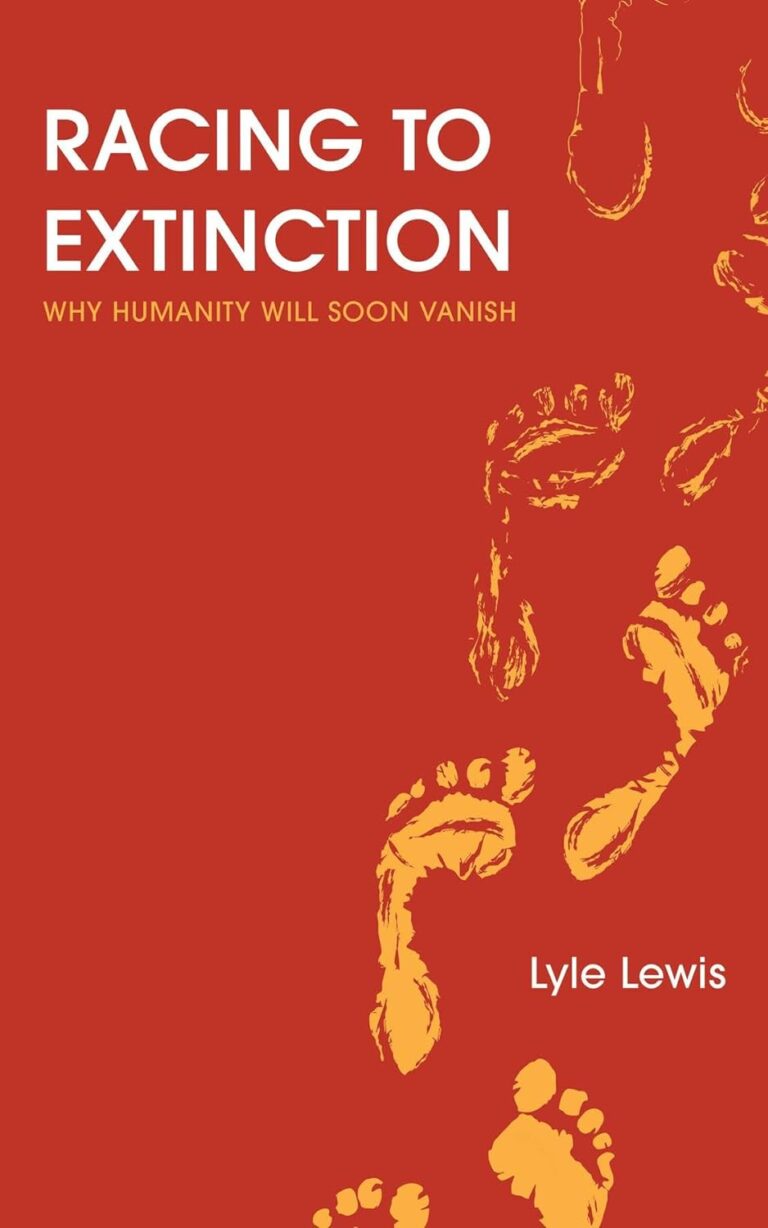Author of RACING TO EXTINCTION, Lyle Lewis states in his bio that he is a former endangered species biologist with the U.S. Department of Interior and goes on to promise readers that they will all soon be dead: “This book explains the impossibility of changing our current trajectory and preventing the extinction of most complex organisms on the planet, including ourselves.” Lewis’s 247-page book comprises nine chapters that deal with topics ranging from species extinction to livestock grazing, overpopulation, and “the psychology of extinction.” As a pessimist’s polemic, the book is quite effective in its cherry-picked content and misleading argumentation. Lewis nonetheless claims that he is being objective in his assessment: “While writing this book, I sincerely wished to uncover information that would disprove my bias,” he writes.
Lewis seems genuinely unaware that any prediction about humankind’s extinction (or survival) cannot be made with the certainty he espouses. Moreover, although he provides a lot of good information, he mostly presents debatable data, such as species counts, as though the numbers are settled. His reasoning is based on the naturalistic fallacy that everything natural is good.
He also makes strawman arguments, claiming for instance that the 1968 book The Population Bomb by Paul and Anne Ehrlich “was gradually rationalized away by most as the work of lunatics.” In fact, the book was widely praised for years, but dismissed because all its predictions proved wrong. (Lewis, undeterred, predicts humanity will be extinct by 2055.)
Unlike most environmentalists, however, he admits to being a hypocrite. He says he lives a life of “extreme environmentalism,” which includes driving a “fuel efficient” car and using a smartphone—plus traveling to visit his friends. “Finally coming to grips with my own hypocrisy was a painful realization,” he writes. At the heart of Lewis’s thesis is straightforward misanthropy; much of his book is spent deriding human beings, with him even going so far as to argue that microbes are more intelligent than us (he does this by redefining intelligence to suit his argument). “Cockroaches, rats, and jellyfish have positioned themselves to seize the reins,” he writes. “There is some consolation in knowing we will not eradicate all life on Earth.” And how should the minority of people who accept Lewis’s dire prophecies deal with the prospect of extinction? Lewis recommends psychedelic drugs like psilocybin and LSD, which have been used to help terminally-ill people.
In RACING TO EXTINCTION, author Lyle Lewis presents humanity’s outcome as a certainty, citing reams of evidence to make this prediction. While he might be correct, he never admits the possibility of error—even though some of his factual claims are open to dispute.
~Kevin Baldeosingh for IndieReader


